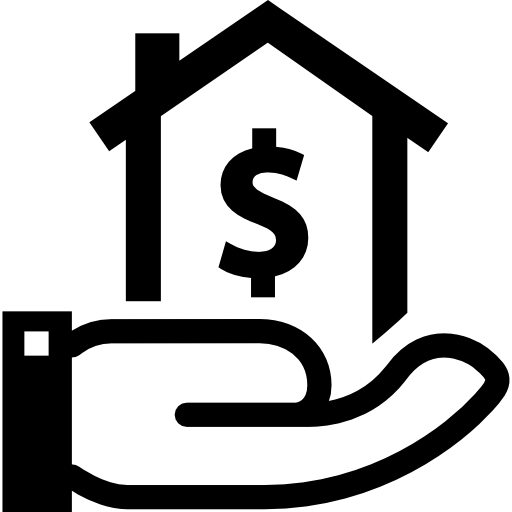You want to be debt-free. Imagine the relief of no more looming payments, no more interest piling up. But at what cost? Selling your home might seem like the quickest fix, but it comes with its own set of challenges. Your house isn’t just a building; it’s a source of memories and stability.
It’s a big decision, and you’re not alone in facing this dilemma. Let’s break down concerns and the obstacles you might face on this journey.
Key Notes
- Evaluate Your Debt Status: Assess your financial obligations and long-term goals.
- Determine Home Value: Use online tools and consult real estate agents.
- Calculate Equity: Subtract your mortgage balance from your home’s market value.
- Consider Alternatives: Look into debt consolidation and refinancing options.
Understanding the Decision
Assessing your financial situation is paramount when considering whether to sell your house to pay off debt. Start by evaluating your current debt status and determining the extent of your financial obligations.
Consider your long-term financial goals and priorities, weighing them against the potential benefits of selling your home. It’s essential to analyze the pros and cons of this decision thoroughly.
Factors to Consider
1. Market Value Assessment
Research Comparable Sales: Begin by researching recent sales of similar homes in your area. Consider:
- Location
- Size
- Condition
- Amenities
Utilize Online Valuation Tools: Take advantage of online tools designed to estimate property values. Input relevant information about your home to receive an initial assessment.
Consult Real Estate Agents: Reach out to local real estate agents for their expertise. They can provide insights into market conditions and help assess the value of your property based on their experience.
Analyze Market Trends: Stay informed about current market trends affecting property values. Consider factors such as demand, supply, and economic conditions impacting the real estate market.
2. Equity Position Analysis
Determine Market Value (MV) and Mortgage Balance (MB): Calculate the current market value of your property and compare it to your outstanding mortgage balance. This involves:
- Obtaining an estimate of your home’s value
- Reviewing your mortgage statement to find the remaining balance.
Calculate Equity Position (EP): Use the formula Equity Position = MV – MB to determine your equity position. This step helps quantify the financial difference between your property’s value and your mortgage debt.
Understanding Positive Equity: If the market value of your home exceeds the mortgage balance, you have positive equity. This indicates:
- Potential for profit from the sale
- Opportunity to use proceeds to pay off debt or invest elsewhere.
Identifying Negative Equity: Conversely, if your mortgage balance surpasses the property’s value, you’re facing negative equity. This situation presents challenges, including:
- Difficulty selling your home profitably
- Potential shortfall between sale proceeds and outstanding mortgage debt.
3. Financial Impact Evaluation
Calculate Visible Costs: Begin by identifying the visible costs associated with selling your house. This includes:
- Real estate agent commissions.
- Closing costs such as title insurance, transfer taxes, and attorney fees.
Assess Hidden Expenses: Don’t overlook the potential hidden costs that may arise during the selling process. These could include:
- Repair and renovation costs.
- Staging expenses.
Account for Tax Implications: Understand the tax implications of selling your home to avoid unexpected surprises. Key considerations include:
- Capital gains taxes.
- Tax consequences of debt forgiveness.
Calculate Net Proceeds: After accounting for all expenses and taxes, calculate the net proceeds from selling your house. This figure represents the actual amount you’ll receive after deducting all costs associated with the transaction.
Align with Debt Repayment Goals: Evaluate how the net proceeds align with your debt repayment goals. Consider whether the funds obtained from selling your house will sufficiently cover your outstanding debts or if additional financial adjustments are necessary.
4. Risk-Benefit Analysis
Identify Immediate Benefits: Start by recognizing the immediate benefits of selling your house to pay off debt. This includes:
- Debt relief: Calculate the amount of debt you’ll be able to eliminate through the sale proceeds.
- Reduction in financial stress: Consider how relieving debt burden can improve your overall financial well-being.
Assess Potential Drawbacks: Acknowledge the potential drawbacks of parting ways with a valuable asset. This involves:
- Impact on housing stability: Evaluate the consequences of selling your home on your housing situation and long-term stability.
- Emotional attachment: Consider any emotional attachment you may have to your home and the impact of selling it.
Evaluate Financial Implications: Analyze the financial implications of selling your house, including:
- Monthly cash flow: Compare the impact on your monthly cash flow between renting and paying off a mortgage.
- Debt repayment effectiveness: Determine how selling your house aligns with your debt repayment goals and financial objectives.
Consider Market Risks: Take into account the risks associated with selling in the current market. This includes:
- Fluctuations in property values: Assess the potential impact of market fluctuations on the sale price of your home.
- Possibility of loss: Evaluate the risk of selling below market value and facing a financial loss.
5. Long-Term Implications
Look beyond the immediate relief of paying off debt and consider the long-term implications of selling your house. Assess how the sale will impact your financial stability and future goals.
Assess Financial Stability: Evaluate how selling your house will impact your long-term financial stability. Consider factors such as:
- Future housing needs
- Potential relocation costs
- Ability to build equity in a new property
Align with Financial Goals: Reflect on how selling your home fits into your broader financial objectives, such as:
- Saving for retirement
- Funding educational expenses for your children
Evaluate Short-term vs. Long-term Impact: Determine whether selling your house provides a short-term fix or supports your long-term financial well-being. Ask yourself:
- Will the sale provide immediate relief from debt?
- How does it contribute to your overall financial security in the future?
6. Financial Stability Assessment
Evaluate Current Financial Situation: Take stock of your current financial status by considering:
- Income stability
- Employment prospects
- Emergency savings
Assess Impact on Financial Health: Determine how selling your house will affect your overall financial well-being. Consider:
- Immediate debt relief provided by the sale
- Long-term implications for financial stability
Plan for Contingencies: Anticipate any potential changes in your financial situation post-sale, such as:
- Job loss
- Unexpected expenses
Ensure Sustainability: Evaluate whether selling your house is a sustainable solution for addressing your debt. Consider:
- Ability to maintain financial stability after the sale
- Long-term financial goals and objectives
7. Sacrifices and Challenges
Emotional Attachment: Acknowledge the emotional attachment you may have to your home. Reflect on:
- Feelings of attachment and nostalgia
- Impact of uprooting your family from familiar surroundings
Logistical Challenges: Anticipate the logistical challenges involved in selling your house, including:
- Finding temporary housing during the transition period
- Navigating the complexities of the real estate transaction process
Weighing Sacrifices and Benefits: Be prepared to weigh the sacrifices against the benefits of debt relief. Consider:
- The extent of financial burden alleviated by selling your house
- Long-term implications for your financial well-being
8. Exploring Alternatives for Debt Management
Before opting to sell your house to alleviate debt, it’s wise to consider alternative strategies that may better align with your financial objectives. Here’s a breakdown of alternative approaches:
1. Debt Consolidation
- What it is: Combine multiple debts into a single loan with a lower interest rate.
- Methods: Utilize a personal loan, home equity loan, or balance transfer credit card.
- Benefits: Simplify monthly payments and potentially reduce overall interest costs.
- Considerations: Assess fees, interest rates, and repayment terms for suitability.
2. Refinancing Options
- What it offers: Secure new loans with better terms to decrease monthly payments.
- Methods: Explore mortgage refinancing or refinancing other loans.
- Advantages: Access lower interest rates or more favorable terms, freeing funds for debt repayment.
- Considerations: Weigh costs against potential savings to determine viability.
3. Negotiating with Creditors
- Approach: Engage in discussions with creditors to seek debt relief solutions.
- Options: Request reduced interest rates, negotiate settlements, or arrange manageable repayment plans.
- Benefits: Many creditors are open to collaboration with borrowers facing financial hardship.
- Preparation: Provide documentation of financial challenges and demonstrate commitment to repayment.
4. Seeking Financial Counseling
- Supportive Services: Obtain guidance and assistance from certified credit counselors.
- Services Offered: Receive help in assessing financial situations, crafting budgets, and developing personalized repayment strategies.
- Educational Value: Gain insights into financial literacy topics such as budgeting and managing credit.
Tips to Sell Your House Fast
1. Preparing Your Home for Sale
- Start by enhancing curb appeal to make a positive first impression. Curb appeal can increase your home’s value by 5-11%.
- Tasks may include landscaping, painting the front door, and cleaning or repairing driveways and walkways.
- Focus on decluttering and depersonalizing the interior to appeal to a wide range of buyers.
2. Staging Key Areas
- Highlight your home’s best features by staging key areas like the living room, kitchen, and master bedroom.
- Create inviting and functional spaces with well-arranged furniture and tasteful decor.
- Pay attention to lighting and ambiance to create a welcoming atmosphere.
3. Pricing Your Home Competitively
- Conduct thorough research to determine the optimal listing price based on comparable sales and current market conditions.
- Avoid overpricing to attract potential buyers and generate interest.
- Aim to price your home competitively to encourage multiple offers.
4. Consider Selling for Cash
- Explore the option of selling your home for cash to expedite the transaction.
- Selling to a company specializing in quick cash sales can minimize hassle compared to traditional methods.
Frequently Asked Questions
What happens if you sell a house before paying it off?
When you sell a house with an outstanding mortgage, the proceeds from the sale will first cover the remaining mortgage balance.
If there’s any profit left after paying off the mortgage and associated fees, you’ll receive it. However, if the sale price is less than the mortgage balance, you may need to cover the shortfall or negotiate with your lender.
Will selling my house affect my credit score?
Selling your house typically won’t have a direct impact on your credit score. However, if you use the proceeds from the sale to pay off debt, it could indirectly affect your credit utilization ratio, which is one factor that influences your credit score.
Navigating Your Path to Financial Freedom
Deciding whether to sell your house to pay off debt is a significant decision requiring careful consideration. Throughout this blog, we’ve outlined key factors to evaluate, from assessing your financial situation to exploring alternative debt management strategies.
Whether you opt for a quick cash sale or pursue other options, prioritize your long-term financial well-being. Contact us today if you are ready to sell your house. Our experts are here to answer all your questions.




